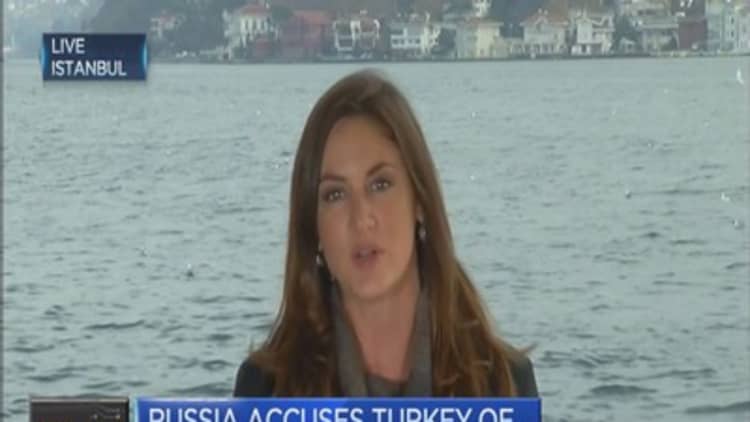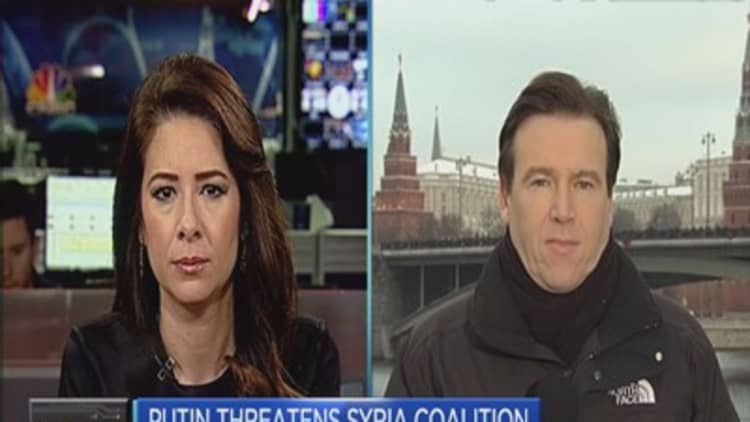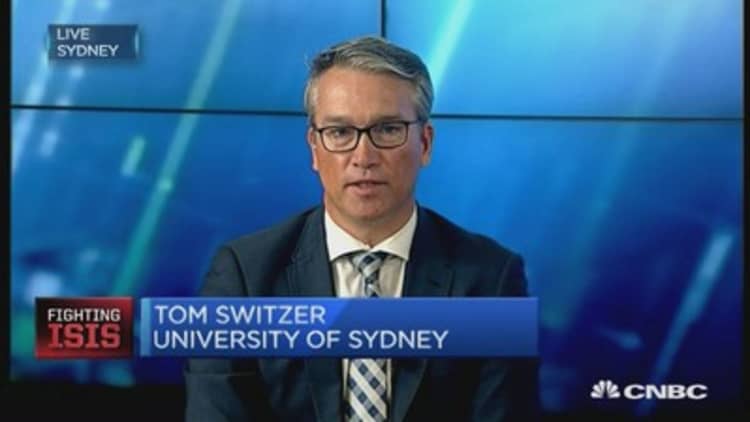



The escalation of tensions between Russia and Turkey this week, after Turkey shot down a Russian aircraft after it allegedly entered Turkish airspace, has gone hand-in-hand with turbulence in the two countries' stock markets and currencies.
At first glance, it was the Turkish lira which was the big loser.
Concerns about President Recep Tayyip Erdogan's face-off with the equally obdurate Russian President Vladimir Putin, together with the release of Turkish government documents where the word "independent" was missing in connection with the central bank, have led to a sharp plunge in the currency's value this week. Over the week, the lira has fallen against the dollar from 2.85 lira on close of trading Monday to 2.92 Thursday.
The ruble, on the other hand, has strengthened along with the price of oil, and increased optimism about the ending of economic sanctions against Russia if it becomes part of an international anti-Islamic State coalition.
Yet this may be only a temporary effect. For starters, the ruble often strengthens near the end of every month as companies convert overseas earnings into roubles to pay taxes. By mid-morning London time on Friday, the dollar had risen against the Russian currency to stand at 66.21 rubles.
One of the reasons for the lira's slide is the exclusion of Ali Babacan, viewed internationally as one of the more economically credible members of the Erdogan regime, from the cabinet.
Both currencies have lost out this year as the panic about emerging market assets grew. Yet, in the long term, the ruble is still likely to lose out as the currency of an oil exporter, while the Turkish currency should benefit as the economic effects of low oil prices help out the oil importing country.
For the lira, there is some light at the end of the tunnel, but much hangs on a crucial meeting of the country's central bank. The Central Bank of Turkey (CBT) has previously signaled that it will start normalizing its policy when the U.S. Federal Reserve starts raising interest rates, a move many expect in December.
"If the CBT does what it said it will on 22 December, we think that CBT action post the Fed hike should be both lira and equity supportive," analysts at Renaissance Capital, the emerging markets-focused fund, wrote in a research note.




